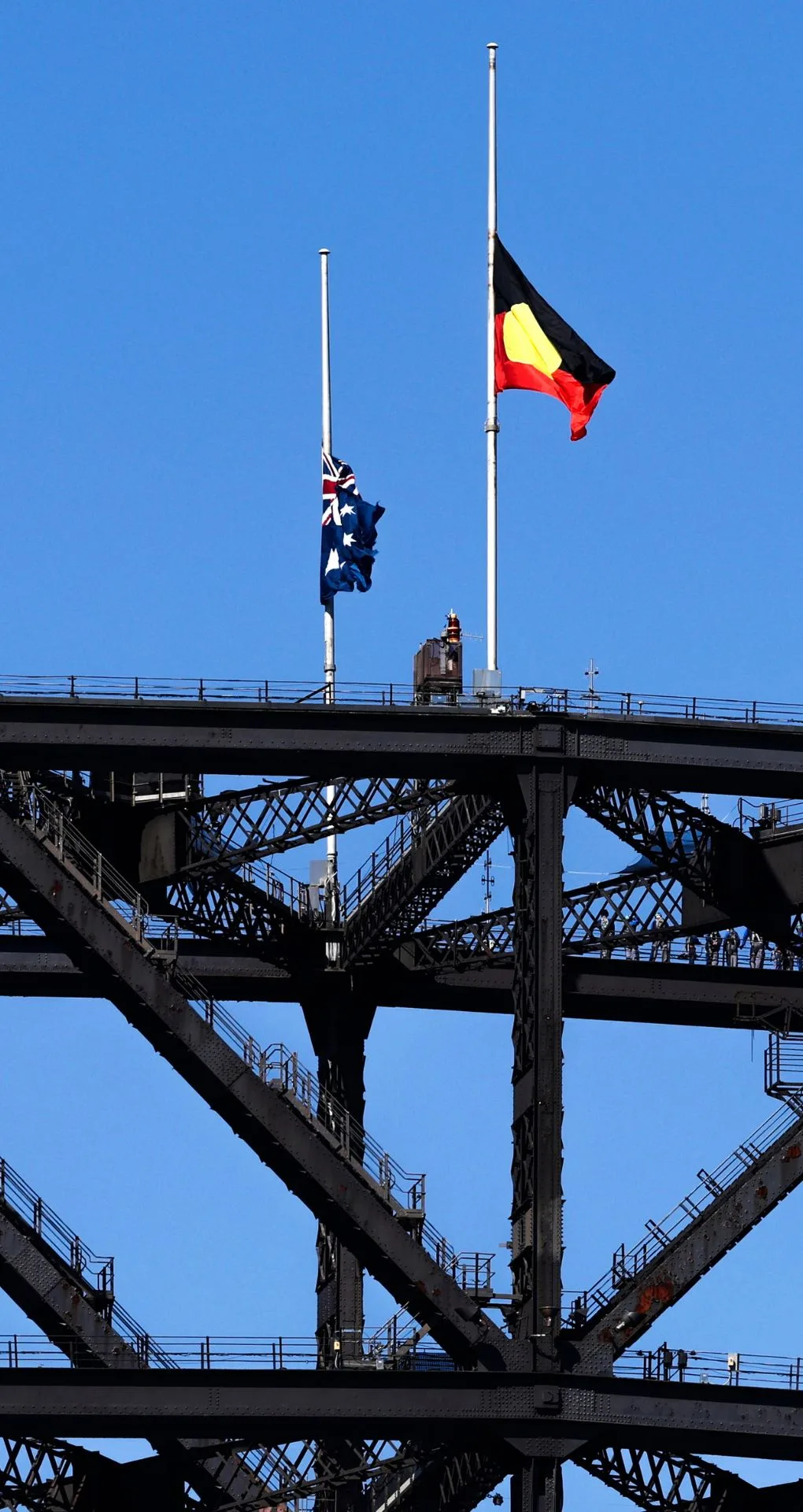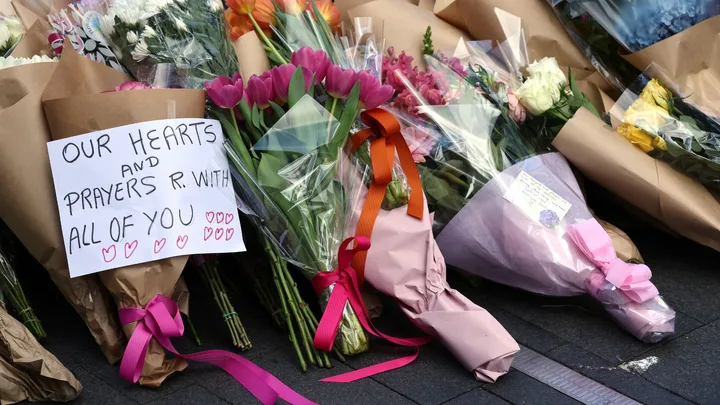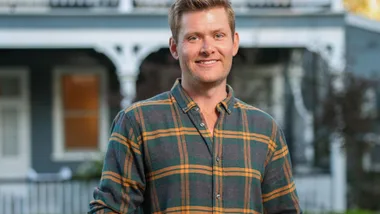Saturday’s horrifying Bondi Junction attacks left six people dead, eight seriously injured and thousands traumatised, with the deep shock and sadness of the tragedy reverberating around the country.
Even for the those who don’t live anywhere near Bondi, the seemingly safe and mundane setting of the event—a shopping centre on a Saturday afternoon—has left us all thinking the same thing: it could have been me or someone I love.
This realisation can shake our sense of safety and amplify our vulnerability, leaving many of us feeling deeply unsettled and anxious about the world around us.
For those struggling, we’ve asked Carly Dober, a psychologist from Enriching Lives Psychology, about how to emotionally process a traumatic event like the Bondi Junction attacks.

Is It Normal To Feel Anxious After A Traumatic Event?
According to Carly, it’s completely normal to experience a wide range of emotions in the aftermath of a traumatic event like this one.
“It is very normal and adaptive for your brain to try to make sense of your surroundings with this new information, your brain is trying to process and understand your level of safety after a random attack when people have lost their lives, and many have been injured either physically or mentally,” Carly explains.
“Common reactions to witnessing a traumatic event include: prolonged crying and sadness, fear, nightmares and difficulty sleeping, anxiety, nausea or headaches, difficulty concentrating, disorientation and confusion, uneasiness.”
“These reactions are very normal to experience and may continue for days or weeks,” Carly says.
“Some people may also feel compelled to research and find out as much information as they possibly can after such a horrific event, because it seems so difficult to understand and is so shocking. They might find themselves obsessing about the event, and also increasing their use of substances like alcohol or drugs to switch their mind off.”
I Feel Too Nervous To Return To Public Places. What Do I Do?
First of all, you wouldn’t be the only one feeling nervous in the wake of the attacks. It’s completely normal to feel like your world isn’t as safe as you once thought.
“I think unfortunately, humans can become complacent about their surroundings and we can forget that no one is ever really 100% safe, however that sense of safety and not being in total control of our lives really becomes evident after an event like this,” Carly explains.
Despite this, Carly says that it’s important that we remind ourselves that event’s like this are still a rare occurrence in Australia.
“We want people to eventually be supported to understand that this is a one off event, in a country that very rarely has mass murder events, and attacks like this do not occur frequently. We also want people to eventually go back to their regular routines and be connected to one another in their community again, because it is really with one another that we are supported to recover.”
According to Carly, it’s a good idea to try and push through some of your nervousness in the coming days and weeks.
“We want people to not self-isolate and to not get into a long term habit of avoiding public places as this can sometimes lead to longer term issues like phobias that can take time to treat with a psychologist.”
“If people have friends or family members who don’t feel as anxious that can go with them the first time they go out in public, that can be very helpful.”
A good way to tell whether your discomfort is something manageable is to check in with your body.
“We also want people to really assess what is happening in their bodies when they are thinking about or heading to the shops, are you so nervous that you’re shaking and crying? If so, you might be flooded and this can be more unhelpful at times to force yourself through something if you do not have adequate coping strategies to manage your anxiety.”
“Are you nervous but is it manageable? This could be a good sign that your distress can be tolerated.”
How Do I Emotionally Process The Bondi Junction Attacks?
In the wake of a terrible event like the Bondi Junction attacks, you might feel inclined to stay home and process your feelings alone.
However, Carly says it’s really important to get outside and connect with others.
“As best as you can, try to stick to your regular routine and get enough sunlight, drink enough water, try to rest and sleep, socialise, keep up with your food and movement routines because we know that movement helps to manage the physiological impacts of stress.”
Carly also believes that doing something tangible can be helpful, whether that’s laying flowers or donating to a related cause.
“Connect with the wider community if you feel helpless and would like to do something tangible, for example donating money to the families if this is possible.”
It’s also important to consider how you engage with the media coverage of the event.
While keeping up with the coverage may make you feel in control of the situation, witnessing a never-ending flood of disturbing footage and information can do more harm than good.
“I would recommend that people limit their exposure to news and speculations about this crime, sometimes when there are gaps in the information people will speculate and what is speculated can be sometimes scarier than the truth,” Carly explains.
“The investigation is still going ahead and I’m sure we will get more information in time. If you find yourself obsessing about the story and it’s taking more time than you think is helpful, try to step away and go for a walk or call a friend and talk about it.”
If you need support, don’t hesitate to reach out to:
- Lifeline: call 13 11 14, text 0477 13 11 14 or chat online
- Beyond Blue: call 1300 22 4636
- 1800RESPECT: call 1800 737 732, text 0458 737 732 or chat online
- If you need immediate assistant, please call 000
 Getty
Getty









